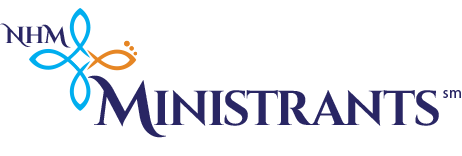Cha·nu·kah /ˈhänəkə,ˈKHänəkə/ – Noun: A lesser Jewish holiday that begins on the 25th day of Kislev and runs for eight days. Also known as the Jewish festival of lights.
Chanukah, or the festival of lights, celebrates a miraculous occurrence at the rededication of the temple in Israel. The second temple had been looted, and Judaism outlawed. An altar to Zeus was placed in the temple, where pigs were sacrificed provoking an uprising known as the Maccabean Revolt. When the temple was freed and rededicated in 165 BCE, there was only enough pure oil for one night. Even so, the candle miraculously stayed lit for eight nights. The holiday's name derives from the Hebrew word for dedication. The holiday can be seen as a celebration of the triumph of light over darkness. If you are thinking about celebrating Chanukah, here is a little help.
Chanukah in a Nutshell
- In 2015, Chanukah begins December 6th. And in 2016 it begins on December 24th.
- Candles: Every evening after sunset for eight days, another candle is lit. A candle known as the "guide candle" or shamash is used to light the other candles. Candles are added moving inward from the far right side of the menorah, but are lit from left to right. It is the candles, not the menorah, that are necessary. Preferably the candles should cast a clear light, and not flicker. Electric menorahs are fine for show, but actual candles should be lit (following good safety practices, naturally) each night when celebrating Chanukah. Where safe, the lights are often placed near a window, or where they may be visible from the street. It should not be moved once it has been lit, and should not be used for reading. Every member of a family should be encouraged to participate in the lighting of the candles.
- The blessing: There are three blessings. They are all recited on the first night of Chanukah, but only the first two are recited on subsequent evenings. 1) Baruch ata Adonai, eloheino melech ha'olam, asher kideshanu b'mitzvotav, vitzivanu l'hadlik ner shel Chanukah (blessed art Thou lord our G*d who has sanctified us with commandments and who has commanded us regarding the Chanukah candles); 2) Baruch ata Adonai, eloheinu melech ha'olam she'asanisim la'avoteinu nubayamim hahem bizman hazeh (blessed art Thou lord our G*d who performed miracles for our ancestors in those days); and 3) Baruch atah Adonai, eloheinu melech ha'olam shehecheyanu vikiyimanu vehigi'anu lazeman hazeh (blessed art Thou lord our G*d who has granted us life, sustained us and enabled us to reach this moment).
- Food: often, latkes – potato pancakes – are associated with the Chanukah festival. Donuts are also popular. Potato latkes aren't difficult to cook: grate potatoes, mix in a little bit of egg and onion, fry them up, and serve with applesauce.
- Game: one amusement is to play the dreidel game, a betting game using chocolate coins wrapped in gold leaf, or "Chanukah gelt." A dreidel is a top with four sides inscribed with four Hebrew letters. With each letter, you either win or lose some of the gelt, as follows: ? – Nun (think none, because you get none); ? – Gimel (think "gimme" because you take the pot); ? Hei (think H for half, because you get half); and ? – Shin (rhymes with "in" – put one in). But there is also an underlying meaning to the dreidel: it wasn't always safe to study Torah, so they studied in secret, but had dreidels along to look as if they were merely playing with tops if they were noticed.
- Songs: some of the most popular children's songs are the Dreidel song (Dreidel! Dreidel! Dreidel! I made it out of clay, and when it's dry and ready, with dreidel I will play.) and O Chanukah (O Chanukah, oh Chanukah, come light the menorah, let's have a party we'll all dance the hora, gather round the table I'll give you a treat, dreidels to play with and latkes to eat. And while we are playing the candles are burning low. One for each night they shed a pure light reminding of days long ago.)
- Gifts: giving a gift of gelt is a custom that has charitable roots, enabling the poor to buy a candle for the holiday, because it's so important to light at least one candle per night, even if money is scarce. As with Christmas, the custom of giving gifts in association with the holiday has expanded over the years.
- There are many online resources that can help bring Chanukah alive, and some of them are aimed directly at children. Jewishkids.org is probably one of the most fun.
Chanukah isn't one of the most important celebrations of the Jewish liturgical year. In fact, it's a minor holiday when compared against Passover and Rosh Hashanah. Still, it is a joyous time, where fasting and eulogies are forbidden, even on a yahrzeit, or anniversary of the death of a loved one.
We hope you've found our little discourse on the festival of lights to be enlightening and useful. We hope it has answered your burning questions about the Jewish festival of lights.
Happy Chanukah / Hanukkah!
What are WebDefs?
WebDefs – simple definitions of key terms relating to ministry and healing arts – are a regular feature of NHM Ministrants. Offered (where applicable) in conjunction with select key scriptural passages and analysis, WebDefs can be a useful starting place for exploring a topic of interest.

